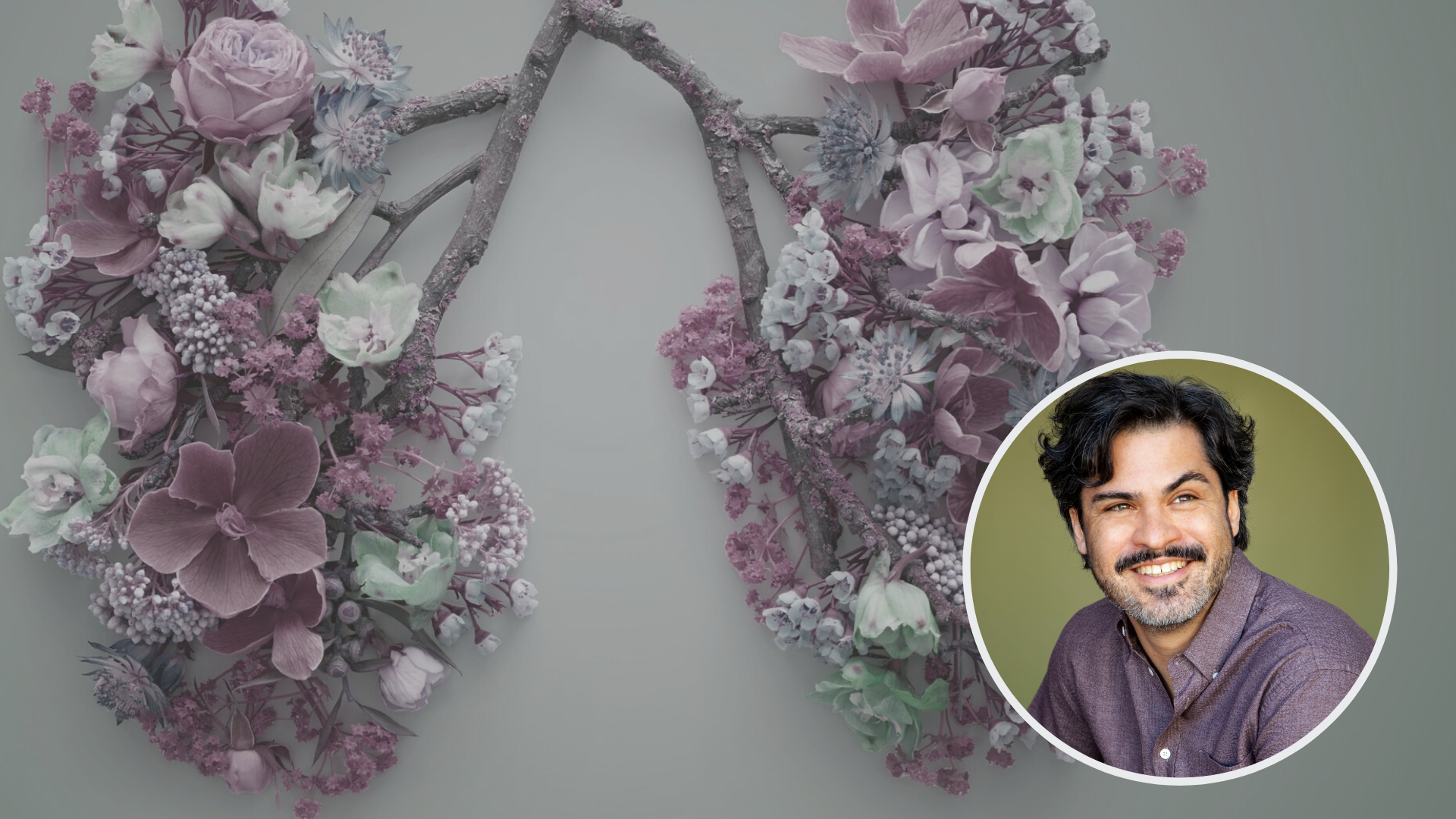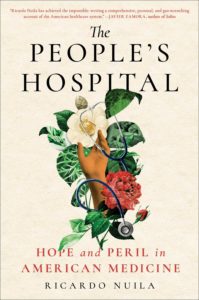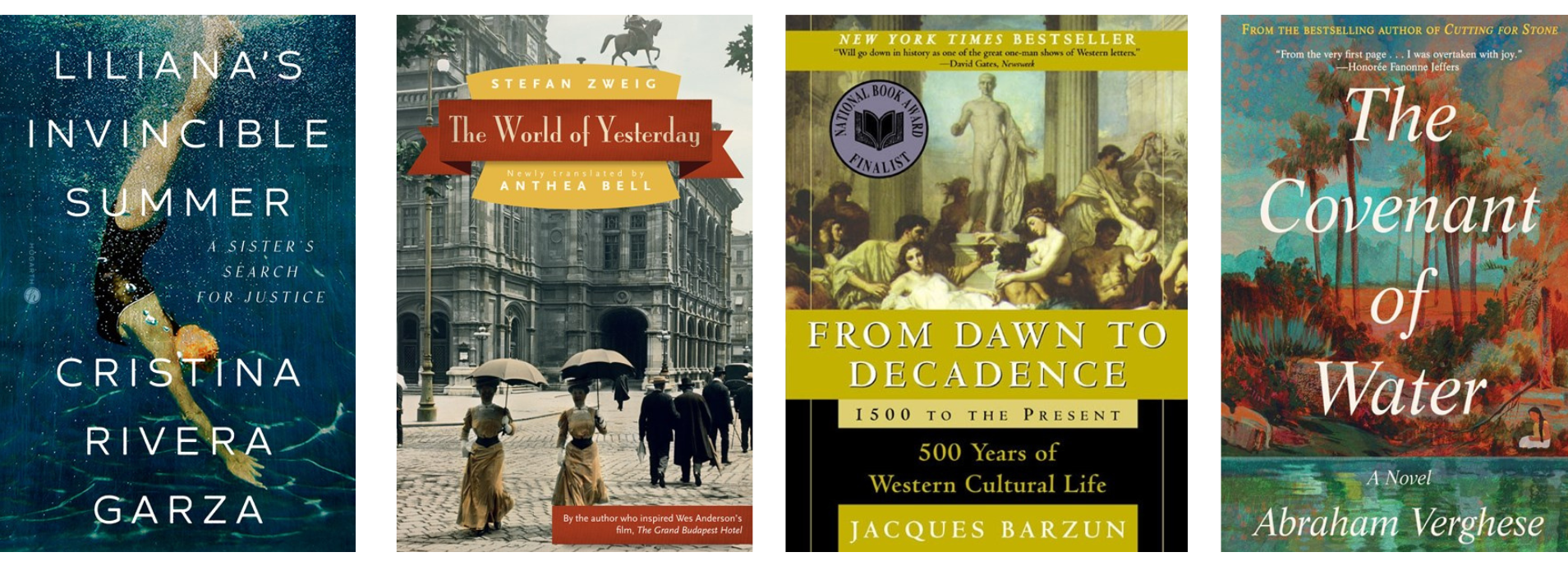
Ricardo Nuila on The People’s Hospital: Hope and Peril in American Medicine
Dr. Ricardo Nuila is a writer, teacher, and practicing doctor. He is an associate professor of medicine, medical ethics, and health policy at Baylor College of Medicine, where he directs the Humanities Expression and Arts Lab [HEAL] program.
We talked with Ricardo about his nonfiction debut The People's Hospital, the relationship between writing and practicing medicine, and the power of patient narratives.
.
 The People’s Hospital shares the stories of five uninsured Houstonians who seek care at Ben Taub, the county hospital where you have worked for over a decade. These stories capture the deep flaws of the American healthcare system while advocating for a more accessible, affordable, and patient-centered healthcare model. When did you know you wanted to write this book?
The People’s Hospital shares the stories of five uninsured Houstonians who seek care at Ben Taub, the county hospital where you have worked for over a decade. These stories capture the deep flaws of the American healthcare system while advocating for a more accessible, affordable, and patient-centered healthcare model. When did you know you wanted to write this book?
I started to write about Ben Taub during my intern year in 2007. The patients I encountered and witnessing how medicine unfolded there captivated me. I would wake up at 4:30 each morning to work on short stories that touched upon my work at the hospital. I never thought about anything beyond fiction until a nephrologist friend asked if I might be interested in writing an essay about the undocumented patients at our hospital, and the difficulties they faced because they could not receive dialysis in a clinic. After writing a few nonfiction pieces, the idea of a whole book started to take shape.
In the introduction to the book, you say that The People’s Hospital “uses stories to think through a problem that goes beyond any one body”—the problem and question of why “some people benefit from healthcare in America while others are excluded.” What was the most challenging part of sharing these narratives? The most rewarding?
Finding the right structure to carry these stories presented the biggest challenge. Soon after I started working at Ben Taub, I realized that the people who visited the hospital weren’t normally highlighted in literature or magazine articles. Figuring out how to convey these stories, and how I, as narrator and doctor, related to them, took more than just many drafts. I had to tear down some barriers stuck in my head. I also had to read a lot about healthcare policy and its history and shape the prose to keep the reader’s interest. That’s the most rewarding part for me: I wanted these policies and points in history to evoke emotion and not just sound high and sterile.
You write that finding and emphasizing patients’ stories (beyond their medical histories) not only makes the medical practitioner more empathetic but leads to more personal, more efficient care. What role does storytelling play in how you practice medicine, and how has being a writer shaped your work as a physician?
Today, I see writing and practicing medicine as one, which is to say, when I’m writing, I’m working on becoming a better doctor, and when I’m practicing medicine, I’m working on my writing. This state of mind didn’t come naturally. At first, writing helped me observe details about a patient and try to situate that into a larger narrative, which was helpful. Medicine, in turn, gave my writing the gift of drama as well as a clear sense of consequence. Internists view the world not in black and white but rather in terms of risks and benefits, which seems the way narrators should look at their characters’ worlds: a good narrator weighs rather than judges.
Who do you hope reads The People’s Hospital and what do you wish them to take away from the book?
I know this sounds naïve, but I hope that everyone—everyone—reads this book and understands that the foundation of medicine—human beings helping one another through sickness—is too precious and beautiful to abandon to the corporate way of doing things, as we’ve done in America, and that there are still institutions and people out there who believe in focusing on the patient.
Are there other writers who inspire your work, whether as a writer or as a physician?
It’s interesting to think of writers that inspire my work as a doctor. There’s Chekhov, for sure, and his work with Russia’s poor, which I mention in the book. I’m inspired by any writer that keeps one eye on injustice and another on all the beauty in the world. So, Denis Johnson inspires me, Elena Ferrante, J.M Coetzee, Cormac McCarthy, so many others.
What are you currently reading? Are there upcoming books that you are looking forward to?
I’m currently reading the works of Abraham Verghese for an on-stage conversation we’ll have in May. I tend not to read doctor-authors as much, but I’m enjoying and admiring how Verghese weaves history in with medicine and narrative. Last year, I read Jacques Barzun’s great book From Dawn to Decadence, which lists some of the most impactful and even soulful books during the last 500 years. I’m looking forward to reading The World of Yesterday by Stefan Zweig from that list. I’m also really looking forward to reading Cristina Rivera Garza’s new memoir Liliana’s Invincible Summer and the next book that follows Jonathan Franzen’s Crossroads trilogy. I read the way I interview patients and gather histories, by following my nose, so it’s hard to predict what, exactly, I’ll be reading next.


